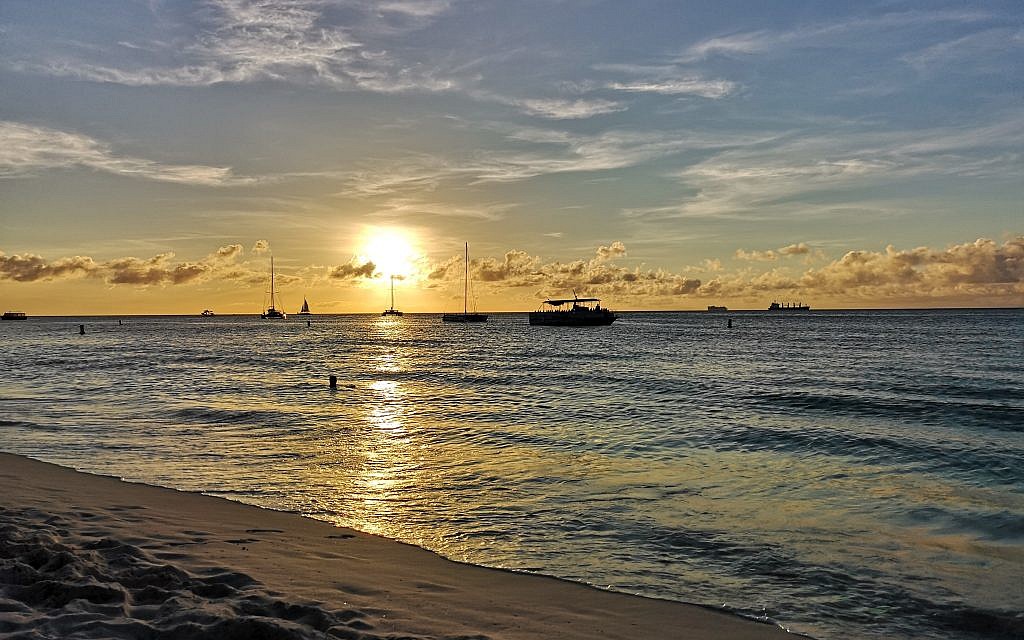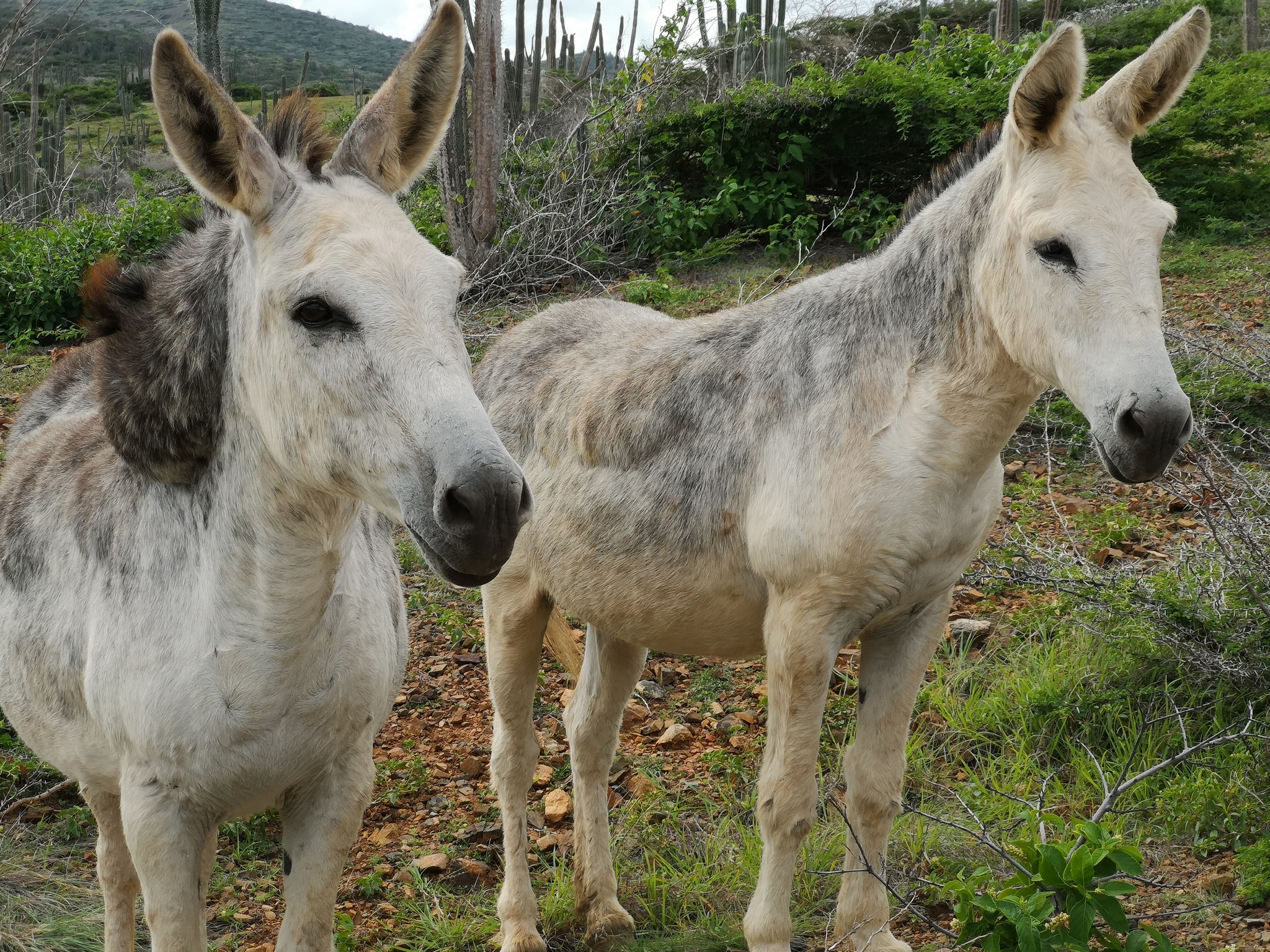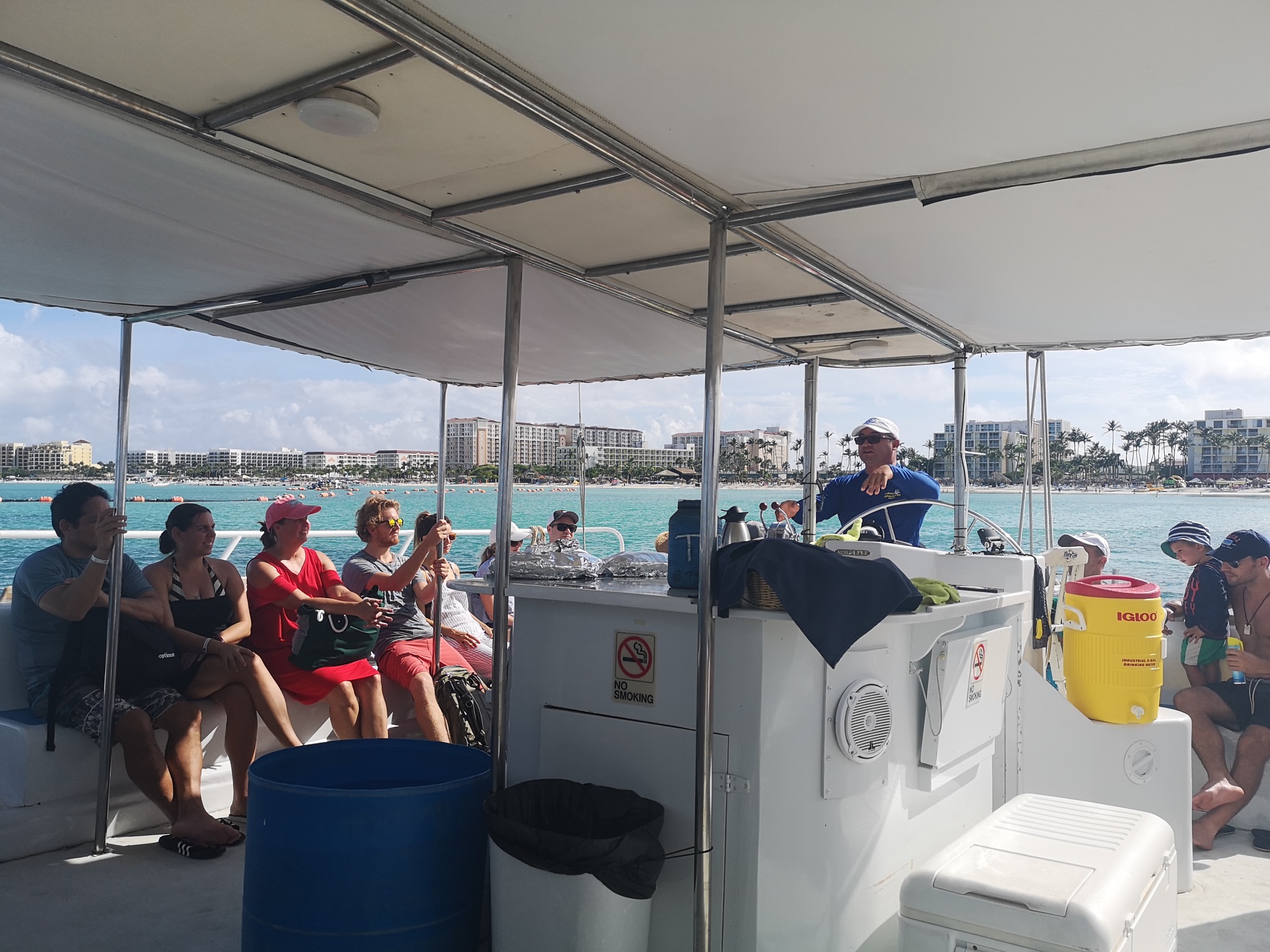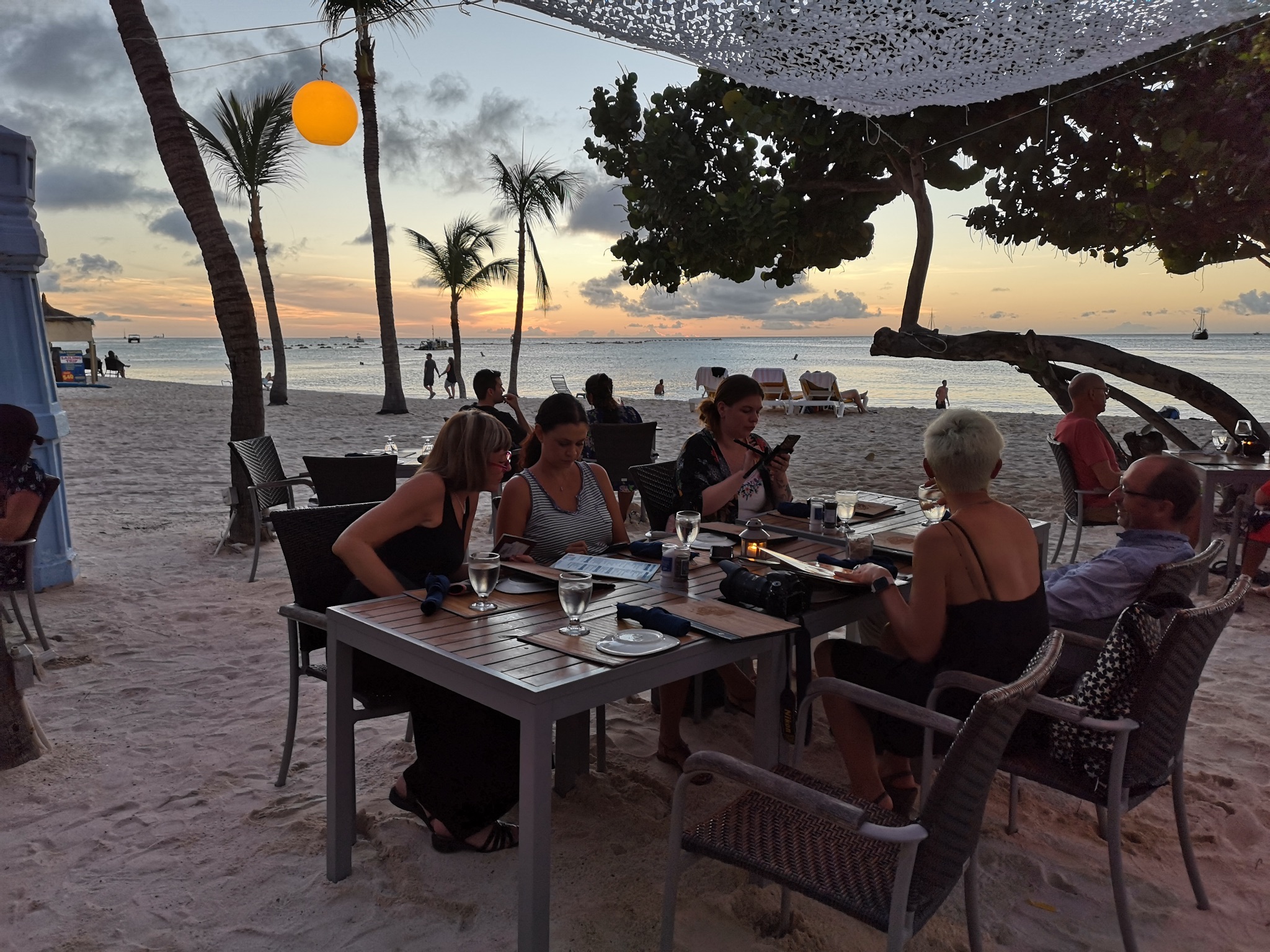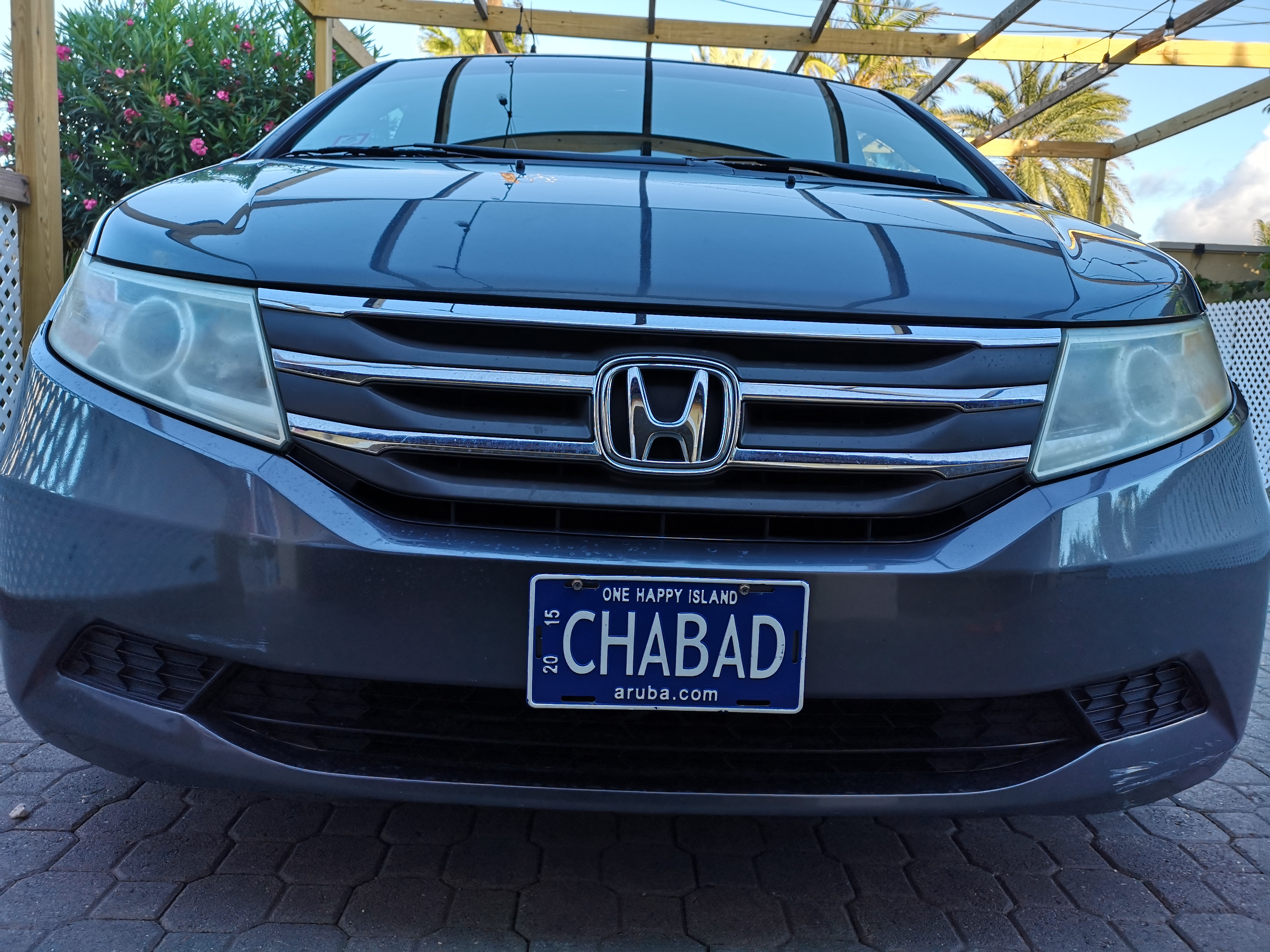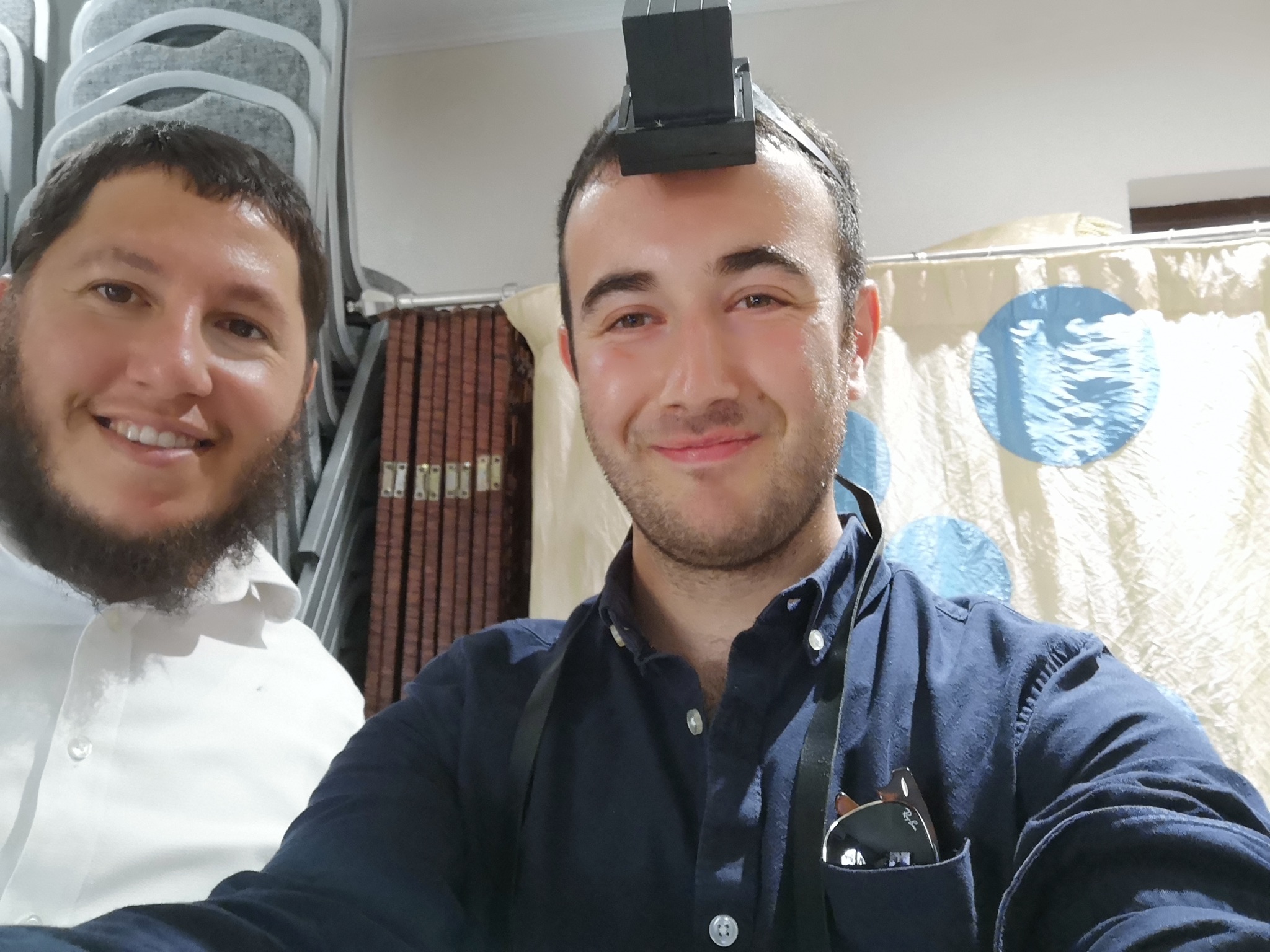Travel: Super duper Aruba! 365-days of sun on One Happy Island
Jack Mendel braved roads, waves and cocktails on a Caribbean island with a Jewish history
I held on for dear life, while the Jeep jumped up and down on mud roads, as my head bumped on the low roof. Our driver, Patrick, shouts “tell me if anyone falls off! I have a lot to show you!”
So much for the beach holiday I was planning. This, according to Patrick was “real Aruba, not the plastic stuff” which, after a jet-lagged night sleep following a nine hour flight with KLM was more than I was expecting.
But as Patrick requested, I strapped myself into the soft-top tiger-painted Jeep (courtesy of ABC Tours) for a drive around the arid desert in the north of Aruba.
Get The Jewish News Daily Edition by email and never miss our top stories Free Sign Up
The jeep took us from ornate old church to lighthouse to epic coastline where the sea crashes into rocky beaches too ferocious for swimming.
There are cacti everywhere, wild donkeys and goats roam free, and the national park sits at the centre of this rural part of the island – a world away from the lights and life, restaurants and bars of the southern coast.
Our island guide, Paula, ferried us to our bus which had the number plate ‘One Happy Island’. I assumed the plate was a tourism gimmick, but every vehicle has it because Aruba is a very happy place. And caring.
Approach the curb to cross the road and cars stop to beckon you across. When walking the street, people smile and say hello; an unknown phenomenon for Londoners. And when you’re eating, waiters crowd around to check on you and repeatedly refill your drink.
I didn’t even see an argument over a parking space on this ‘happy island’ which is so dependent upon visitors.
With roughly a third of its GDP from tourism and one of the highest rates of returning visitors; they have mastered making you feel welcome.
So it’s easy to be a tourist in Aruba. Most speak English, as well as Dutch, Spanish and the local language, Papiamento. Everywhere accepts the US dollar, as well as the local currency, Florin, which has some square coins!
I stayed at Brickell Bay Hotel, a two-minute walk from the beautiful Palm Beach resort, which lies empty in the day and teems with life at night, as the lights on the island’s many casinos start to flash.
Brickell Bay has everything you need, including a large pool with a bar in the centre. Its continental-style breakfast was hearty, and the restaurant is adjacent to a busy street so you can watch the world go by. My room was large, with comfy beds, and all you need to stave off the heat, even at night.
During the day, it’s an island for water-related activities, including stunning beach flamingos, fishing, deep sea diving, snorkelling, sailing, submarine tours, windsurfing, kite surfing; and the list goes on.
Most enjoyable for me, a non-swimmer, was the four-hour champagne breakfast catamaran trip. Complete with three diving stops -including the site of a sunken German warship – it was a chance to gaze at the crystal-clear shark-free ocean, and try the local cocktails.
The gentle breeze and slightly cloudy sky are both permanent fixtures of the island along with the cocktails, my favourite being the bright orange Ariba Aruba cocktail – but the captain of the ship kept its make-up a secret.
Aruba has a long and at times dark colonial history, though as a part of Holland, Dutch is widely taught and spoken, and the flag is everywhere. But there are also influences from Spain as well as migrants from Venezuela, the Caribbean and Latin America. This is most obvious in the bars and restaurants, many of which are sea food-based with ingredients caught seconds before you order.
At Zeerovers fish restaurant, creatures swim below your feet and you can see them through the cracks in the decking , while on the Palm Beach, at Pelican Pier and Moomba bar seafood features heavily, but grills and burgers are also available. Moomba has a great vibe, with tables and chairs on the beach under a tarpaulin and my vegetarian fajita was a delicious accompaniment to the watermelon mojito.
If seafood isn’t your thing, Old Cunucu House, inland, offers a more European flavour, including vegetarian options such as pasta, while a number of cats purr on a patio waiting for scraps to eat. It’s much more intimate, even if they did accidentally serve me chicken, topped with cheese. Not very Kosher.
Aruba may be ‘One Happy Island’, but for years, it was also a place of refuge for those fleeing hardship, including European Jews.
It has a profound if hidden Jewish history, with former Prime Minister, Mike Emen, a member of the tribe, and the Aloe factory, which produces soaps has a plaque at the entrance dedicated by director, Louis A. Posner, to his parents, Israel and Aida.
The Island’s small but proud community is based at the Conservative Synagogue in the capital Oranjestad, but despite having a full-time rabbi it has shrunk recently as younger Jews leave for opportunities elsewhere.
The challenge for the community has become more acute since 2013, with the introduction of Chabad near the resorts in Palm Beach, giving tourists a more convenient alternative.
Benjie Pick, a Jewish US-born Arubian who owns the ‘La Moderna’ clothing shop, told me about the fascinating history of the community which was made up of mainly Polish, Russian, Lithuanian and other European Jews, looking for a better life. It was established in 1963, and Pick said the Jews who arrived worked very hard, and it was “a safe haven”, with virtually no antisemitism.
Those founding members have now gone and the community’s future is, he says, reliant on “ten of us, picking money out of our pocket and donating and helping which is not going to take too much longer if it continues that way.”
While bearing in mind the struggles of the local shul, I visited Chabad Aruba, meeting US-Israeli Rabbi Ahron Blasberg, his Leeds-born wife Chaya, and their four beautiful kids.
Before I walked into his house, I noticed the number plate had ‘One Happy Island’, at the top, and ‘Chabad’, in big letters below; for which the irony was not lost on both of us, as we discussed the plight of the local community. He said he “totally understands” their concerns, but added that since Chabad’s arrival “Judaism just grew.”
“People became more active. Holidays became more celebrated”, he said. While for the first time ever during the month of November they recently got a minyan, during last Shabbat they hosted more than 35 people, and in ‘high-season’ it can be up to 150. He has tapped into a demand from tourists visiting the island’s resorts and wanting to touch base with their Judaism, as he proudly tells me he even hosted former PM Mike Emen the previous week.
Being Jewish in Aruba isn’t as difficult as you may think, he tells me, with most food imported from the USA being kosher, and regular ships from Florida coming in, which can have kosher meat added.
Reflecting on the friendliness of islanders, he told me cars honked at him while he was walking on Shabbat with a talit on, but said: “People ask me if that is antisemitism? And I say no! These people are offering me a lift and I have to say thank you, but no!”
Jack’s Aruba fact box:
- Expedia offers 7 nights at the Brickell Bay Beach Club & Spa from £977* per person staying in a Superior room. Includes return flights with KLM from London Heathrow. *based on a departure date of 04 May, subject to availability (www.brickellbayaruba.com)
- ABC Island Tour US$79 per adult (www.abc-aruba.com)
- Pelican Adventures Catamaran Tour US$56 per adult (www.pelican-aruba.com)
- Windsurf Class with Active Vacations, beginners lesson $50 per person (www.aruba-active-vacations.com/windsurf/)
READ MORE – TRAVEL SUPPLEMENT:
- Berlin beckons
- For the love of Lisbon
- Why Portugal’s the most wanted destination post-Brexit
- Wonderful Copenhagen!
- Exploring unexpected Croatia!

Thank you for helping to make Jewish News the leading source of news and opinion for the UK Jewish community. Today we're asking for your invaluable help to continue putting our community first in everything we do.
For as little as £5 a month you can help sustain the vital work we do in celebrating and standing up for Jewish life in Britain.
Jewish News holds our community together and keeps us connected. Like a synagogue, it’s where people turn to feel part of something bigger. It also proudly shows the rest of Britain the vibrancy and rich culture of modern Jewish life.
You can make a quick and easy one-off or monthly contribution of £5, £10, £20 or any other sum you’re comfortable with.
100% of your donation will help us continue celebrating our community, in all its dynamic diversity...
Engaging
Being a community platform means so much more than producing a newspaper and website. One of our proudest roles is media partnering with our invaluable charities to amplify the outstanding work they do to help us all.
Celebrating
There’s no shortage of oys in the world but Jewish News takes every opportunity to celebrate the joys too, through projects like Night of Heroes, 40 Under 40 and other compelling countdowns that make the community kvell with pride.
Pioneering
In the first collaboration between media outlets from different faiths, Jewish News worked with British Muslim TV and Church Times to produce a list of young activists leading the way on interfaith understanding.
Campaigning
Royal Mail issued a stamp honouring Holocaust hero Sir Nicholas Winton after a Jewish News campaign attracted more than 100,000 backers. Jewish Newsalso produces special editions of the paper highlighting pressing issues including mental health and Holocaust remembrance.
Easy access
In an age when news is readily accessible, Jewish News provides high-quality content free online and offline, removing any financial barriers to connecting people.
Voice of our community to wider society
The Jewish News team regularly appears on TV, radio and on the pages of the national press to comment on stories about the Jewish community. Easy access to the paper on the streets of London also means Jewish News provides an invaluable window into the community for the country at large.
We hope you agree all this is worth preserving.
-
By Brigit Grant
-
By Laurent Vaughan - Senior Associate (Bishop & Sewell Solicitors)
-
By Laurent Vaughan - Senior Associate (Bishop & Sewell Solicitors)
-
By Laurent Vaughan - Senior Associate (Bishop & Sewell Solicitors)
-
By Laurent Vaughan - Senior Associate (Bishop & Sewell Solicitors)


